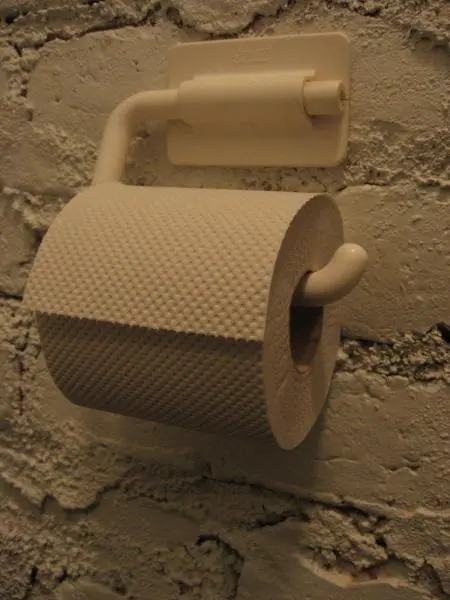There was this time I had to write something, and it had to be perfect.
I was headed to a workshop with my idol. I wanted to know what one of my literary heroes thought of my work, and I wanted to know what he thought of my best work. I had to know.
I'm a drafter. I write something, then revise, revise, revise again. I’m a drafter, so when it came to writing something important, I stuck to the one trick I knew: relentless revision. Relentless, punishing revision that melted my damn eyeballs.
I figured that if I revised the same 5-page story 10 times, I figured it might not be any good, but it would be as good as I had in me.
At the top of each draft I wrote the draft number. 1-10.
By the time draft 3 was finished, the story was taking shape.
By draft 7 I wanted to die in my sleep so I wouldn’t have to wake up and face those same stupid pages again.
And by the time draft 10 was finished, I knew what I had. I knew it was as good as I had in me.
This column, this column’s going to ask you to do a hell of a lot of work. This column is going to ask you to try writing 10 drafts of your next project. 10 complete, start-to-finish drafts.
Read this column, then give it a shot. I urge you. I challenge you. Whatever you think your writing style is, however you think you work best, I challenge you to trash it and write 10 drafts of your next piece.
Here’s why.
1. There Are Some Guarantees
10 drafts isn't going to guarantee you have something awesome. That's never a guarantee. Let’s get that out of the way.
There's that saying about a polished turd, of course. And when it comes to turds, I make no guarantees. Turd guarantees, those are between you and your bowels.
10 drafts don't guarantee a great story. But they will guarantee something. Those drafts will guarantee that what you've produced is just about as good as you can make it. If your work is a turd, it’s a turd. If you’re going to throw a turd down on an editor’s desk, might as well make it a nice one.
If a polished turd is the best you've got, if polished turd is your pinnacle, then best not to skimp on the polish.
2. You'll Never Be More Free
Your first draft, there's so much to explore. So much territory to cover, so much to do. And in that first draft, it can be tough to let yourself go. To let yourself really explore, really go down a different path or deviate from whatever skeleton of a plan you had in your head because you get interested in something along the way.
When your rough draft is draft number 1 out of 10, you become a lot less concerned with whether or not you're headed down the right path from start to finish. Doing it just right is a hell of a lot less important. You have 9 more tries to get it right. You can waste a couple paragraphs writing about, I don’t know, the sunset or some other crap.
It can be hard to break through and write free. To make yourself not care about spelling or about grammar. To make it so you can interrupt yourself mid-sentence, start a new paragraph, and take things in a new direction.
10 drafts, it takes all the pressure off your first draft.
For one draft, for one beautiful, messy, hellacious slog of a draft, you’re free.
3. You Will Get Over That Hump That Comes In Starting A Second Draft
Coming back to a messy draft isn’t fun. It’s like leaving for a vacation, and 2 hours in to a 14-day trip you realize that you left a package of raw chicken in the garbage can under the sink. The garbage can under the sink that you meant to empty out before you left.
That messy draft, like that raw chicken, it festers and it brews up something fierce. Like that chicken, it's okay for a while, but it gets worse and worse when you leave it unattended too long. Like that chicken, your messy first draft plagues your mind. Whenever you’re in a quiet moment, all you can think is, “Oh, man. That draft is gonna be NASTY by the time I get back to it.”
Here’s the good news. If you’ve already signed up for 10 drafts, you’ve already committed to a hell of a lot of work. You’re prepared. You’ve flushed the idea that you can return to your desk and sit in front of a great, tidy little piece of writing every time. You’ve already told yourself that this piece is going to be work.
If you’ve already decided that it’s going to be work, then draft 2 of 10, that’s no problem. Maybe it's still a mess after draft 2. That's fine. It's a process. You don't have to kill yourself perfecting, smoothing a rough draft in one go. There's sanding to be done, and you do it one pass at a time. As much as you took pressure off of draft 1, you do the same with draft 2. You can get back in there and get to work.
4. You’ll Perfect Your Voice
When we talk about voice, we say what something sounds like. We say how a person's voice sounds. We talk about the music in the lines. Aural. All those terms, they're all about sound.
Draft out loud over and over, read those drafts out loud over and over, and you’ll get to know your voice. Your voice within a given piece, and your voice as a writer.
When you draft just a few times, you’ll catch the big inconsistencies. The things that are obviously discordant (for example, me using the word “discordant” instead of “shitty sounding”).
When you draft in the double digits, you’ll find the smallest, tiniest things. You’ll have conversations with yourself about the individual words, how they fit and whether your character would really say that. Instead of a few big decisions, you will make thousands of tiny decisions. Which is how you cultivated your regular, everyday voice. The one you talk with.
Do the same thing in your work. Build your voice the same way. A thousand tiny decisions at a time.
5. You Get Away From Thinking You're A One-Draft-Wonder
I talk to a lot of people who think there are two kinds of writers. One-offers, people who get it right the first time, and drafters, people who draft and draft and draft.
To you one-offers, I just want to ask. What are you afraid of? What are you afraid is going to happen when you go back over your writing?
Is it that FEELING? That raw authenticity? Is it the feeling that a first, emotional rush of a draft will always be closer to the real feelings than what looks like a cold, clinical self-autopsy of those words?
Maybe it’s like coming back from a vacation. Everyone at work asks how your trip was. Everyone asks separately, and each time you tell the story, you notice details drop away. You don’t care as much. By 3 P.M., by the time you’ve told the story a dozen times, it’s like it happened to someone else. The passion is dead.
I get that. I understand how that one goes. You can only tell the story about your vacation, the story about that chicken you left in the garbage, you can only tell that story so many times before you lose the thrill, the verve that comes with such a heady tale.
But if you want me to understand your words, if you want me to feel what you felt or understand what you felt, your first expression of it is never going to be as good. It’s never going to take me there.
Remember, if you’re writing something for others to read, there’s a difference between your purest expression of your inner emotion and your communication of that emotion to me.
Break your one-draft habit. While you’re at it, break it like crazy and go for 10.
If you're skeptical, I challenge you to try it. Keep your first draft. Keep that file or those pages pristine. Then draft 10 times. Then find a reader to read both. See which one she prefers.
6. You Will Make Better Use Of Your Editors
By the time you bring your piece to an editor, if you've drafted 10 times, you'll know all the weak points. You'll know the stuff that caught you up. The lines you're unsure about. On your tenth draft, you know the material inside and out.
Which is great for your editors. Assuming you’re not a defensive person, assuming your editor can be honest with you, 10 drafts lets you skip a whole lot of nonsense with your editor. Typos, cut and paste errors, or little quirks that don't fit with the rest of your piece. All of that is gone, and you and your editor can talk about what you really need to talk about, your story.
You will know the questions you want to ask, and you’ll be able to answer all of the questions your editor has. You and your editor, you can have a much deeper conversation about what is and isn't working if all the details are handled.

7. You'll Get To Know When It's Time To Step Away
A question lots of writers have, How do I know it's time to walk away from a piece? How do I know when it's done, when the edits are done?
The answer is impossible, and that's why the question gets asked a lot.
However, I will tell you, as you climb in drafts, you start to get the feeling you're beating a dead horse. And then you get the feeling you’ve beaten the dead horse so much that you accidentally restart his heart. He rises again, and now you’re beating an undead horse. An unholy, undead horse that's terrorizing the countryside with its speed, jumping ability, and taste for human flesh. Just pray that you can find a horse’s only weakness, two small squares of opaque material to put on the sides of his head. That trick always seems to disable a horse completely.
When you get up there in drafts, you'll find yourself changing words back and forth. You'll flop back and forth on the same sentence, turning it into two sentences in draft 5, then one sentence in draft 6, then back to two sentences again.
You'll get to know when you’re done. Somewhere within ten drafts, you’ll feel it. And the more time you spend in that knowing, the more time you spend with the feeling that your work is done, the easier it will be to recognize that same familiar feeling in the future.
8. You'll Lose Patience With Your Own Unnecessary Crap
If you read the same sentence ten times, it'd better be good. If you wrote it ten times, it'd better be worth your damn while.
There's no room for wasted words in a 10-draft story. You're going to be sick of your own nonsense way before you hit draft 10. Stuff that's not mind-blowing but serviceable, more and more of that goes away with each draft. You hit draft ten, and by then it's like...
It's like moving into a house. If you knew you were moving ten times in the next year, you'd suddenly have a lot less need for the stuff that wasn't important to you. That ironic lawn gnome? He'd be left behind 3 moves ago, and you'd never look back.
Consider each draft a move to a new home. In each draft, you have to decide which words are worth carrying with you. If each draft is a move, then 10 moves will get you down to what you really need, down to the story you really want to tell.
The more you draft, the more you move those words around, the more you carry them, the less time you'll have for extra crap you don't need.
9. Writing Becomes Your Life
Tell me a year, tell me “the year was 1993,” and I won’t remember anything.
Play me The Cranberries’ “Linger”, I'll remember. I’ll remember my boombox. I’ll remember the music video, I’ll remember the Zenith TV that I watched it on. The Mazda van I rode around in. Give me a life thing, not a number, and I’ll remember.
When you draft a couple times, pieces come and go. They don't stick in your memory. You use that brain space to write something new.
When you draft hard, you remember. You remember the hot summer when you worked on that love story, remember how you drove to the coffee shop where they made terrible coffee but they had air conditioning. When you draft hard, you remember how you worked on that horror piece when you lived in the crappy apartment, the one where you took all those dog sitting gigs from friends because it meant you could crash on a couch and spend a night anywhere else but your hellhole apartment.
When you draft hard, the memories from your life, they become entwined with your writing memories. Your writing, it becomes a part of your life that’s no longer separate from everything else.
When you draft hard, your writing, it's your whole life.
10. Because If You Do It Enough, You Won't Need To Do It Anymore
All this stuff, it's about getting to know yourself better as a writer. Your voice, your editor, the things you mess up all the time, your finish line. If you push the drafts to a ridiculous limit, you'll spend more time with these crucial aspects of your own writing than you ever have before.
The best reason to draft 10 times, the biggest endorsement I can give, if you draft 10 times, if you draft enough pieces 10 times, you won't have to do it anymore.

About the author
Peter Derk lives, writes, and works in Colorado. Buy him a drink and he'll talk books all day. Buy him two and he'll be happy to tell you about the horrors of being responsible for a public restroom.










